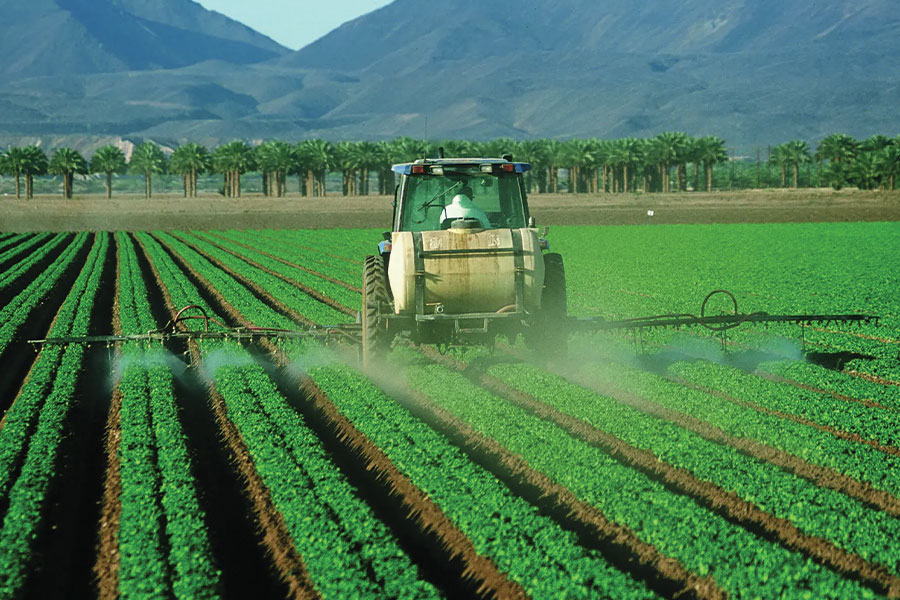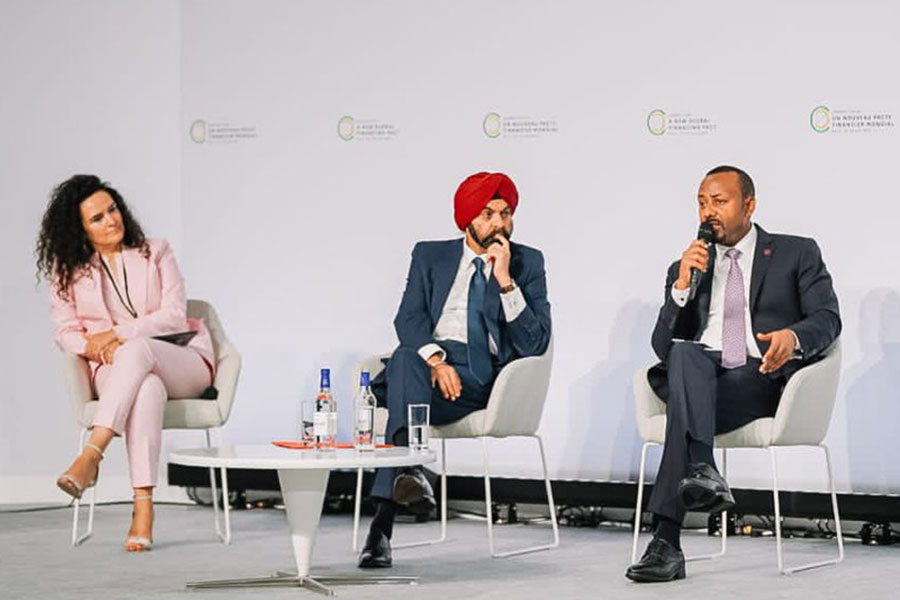
Radar | Jun 11,2024
Jul 1 , 2023.
As the adage goes, tragedy tends to beget not only tears but also a dark vein of humour.
Ethiopia presently showcases this societal pattern. A grim jest doing rounds on social media features a fictional bank promising impressive interest rates to fund potential future ransoms – a reflection of a surge in abductions and kidnappings in several parts of the country. In the midst of growing political violence and societal unrest, the jest is a bitter pill wrapped in the guise of digital laughter.
Only a few weeks ago, a family’s plea for locating a kidnapped father echoed through the virtual avenues of the social media landscape. The man had been last heard from after leaving Friendship International Hotel near Airport Road. Law enforcement authorities remain worryingly silent. In another horrific incident, an eminent artist was found dead after an alleged abduction in Adama (Nazareth) town, adding to the growing fear and insecurity that now percolates across the country.
A worrying catalogue of events has marked recent years, with a new, distressing frequency of violence due to societal conflict. Political turbulence has become a widespread affliction, not only across Ethiopia, but throughout the globe, and its repercussions are deeply felt in the economy of the affected regions.
In the Weberian framework, the state, having the “monopoly of lawful and legitimate violence,” is vital in fostering a secure environment conducive to societal and economic activities. However, the Ethiopian reality challenges this ideal as violence continues to scar the country’s social fabric.
The Conflict Severity Index by the Armed Conflict Location & Event Data Project (ACLED) for 2023 demonstrates the heavy toll of escalating violence in Ethiopia. In the year since June 2022, Ethiopia witnessed a staggering 1,105 political violence events leading to 5,428 reported fatalities. Tigray, Amhara, and Oromia regional states experienced particularly high levels of violence, with a wide variety of incidents ranging from communal clashes to insurgent attacks and even a full-blown civil war that has now subsided.
The implications are severe, impacting the country’s economic stability and state fragility.
Concerns rise particularly in the Amhara region, the federation’s second-largest state in terms of population and size. An increasingly restive and youthful populace is being mobilised for violent conflicts that have become a worrying norm. Oromia, one of the country’s most populous regions and a key contributor to Ethiopia’s economy, faces similar issues. Clashes between federal forces and insurgent groups have disrupted supply chains and created an uncertain business climate.
The Tigray Regional State adds its own measure of unrest to the mix. The region’s geopolitical implications following a diplomatic incident after an American diplomatic visit to Alamata, a small town in the Tigray Regional State but claimed by the Amhara Regional State, show how quickly the political landscape can heat up. The peace deal that was initially seen as a step towards ending an industrial-scale war now shows its limitations, failing to pave the way for political dialogues that can address deep-seated disagreements over disputed territories and the role of the federal government in the affairs of the regional states.
Even with a peace accord signed between the federal government and the TPLF in Pretoria and Nairobi, conflict continues in Tigray, hampering humanitarian aid, exacerbating food insecurity, and discouraging investment.
Investment, a key driver of economic growth, requires stability. As violence in Ethiopia escalates, attracting both domestic and foreign investment becomes increasingly difficult. Tourism, once contributing 4.9pc to Ethiopia’s GDP and providing employment to millions, suffers a downturn, impacting domestic revenues and employment rates.
In this turmoil, the role of the state as the lawful entity with a monopoly on legitimate violence is crucial. Beyond mere suppression, it must ensure individual rights and freedoms, economic growth, and mediation in societal conflicts. Its primary responsibility is to protect citizens and their property; a failing state invites chaos and societal decay.
As Ethiopia grapples with these challenges, it becomes apparent that the state must reclaim its Weberian role. Constructive political dialogue is needed to tackle grievances and disputes without resorting to violence. Strengthening local governance structures, pursuing judicial reforms, and enforcing impartial law should be paramount to rebuilding trust in state institutions.
Dialogue with insurgent groups could quell violent incidents and display the state’s commitment to addressing issues of marginalisation and social polarisation. A successful dialogue for negotiated settlement can serve as a critical step towards reasserting the state’s monopoly on legitimate violence, thereby restoring law and order.
Efforts towards reconciliation and social cohesion should also be pursued. Encouraging society to abandon violence in favour of peaceful resolutions to differences can pave the way for healing the societal divisions worsened by violent clashes. Indeed, as the adage goes, “Toleration makes differences possible; differences make toleration necessary.”
The state can also stimulate economic stability and growth through appropriate policies. An environment conducive to business, fostered by the federal government, can ameliorate economic hardships, often fuelling resentment and conflicts. Initiatives such as infrastructure development, favourable tax policies, and investment incentives can attract investors, boost domestic enterprises, and stimulate job creation.
Institutionalising the rule of law is crucial. The state’s monopoly on violence must be exercised within the law’s confines, with a judicial system that is impartial and accessible to all citizens. Holding those who break the law accountable, irrespective of their position or affiliation, the state can regain credibility and assert its role as the guardian of order and justice.
Nonetheless, the responsibility does not solely rest on the Ethiopian state. The international community has a role to play in Ethiopia’s journey towards stability, providing essential resources and expertise in conflict resolution, governance, and economic development. Humanitarian aid, particularly in conflict-ridden regions such as Tigray, Amhara, and Afar, is urgently needed. Depriving victims of conflicts essential emergency aid because federal and regional authorities were found diverting it for their own purpose is morally unjustifiable.
However, Ethiopia’s development partners should continue advocating for not only official transparency and accountability. They should also raise their voice in defence of human rights protection and the cessation of hostilities. Diplomatic pressure can serve as a compelling incentive for Ethiopian federal government authorities, regional states, and other conflict actors to prioritise peace and citizens` welfare over power struggles.
Political violence in Ethiopia paints a troubling picture, threatening not only the safety and well-being of its citizens but also the country’s economic stability and development prospects. A strong, law-abiding state, upholding the principles of justice, is vital to reversing this trend.
Ethiopia’s story is still being written. Its future chapters need not be marked by violence and conflict. Through collective efforts and a steadfast commitment to peace, stability, and development, a different narrative can emerge — one where the state fulfils its legitimate and lawful role, and economic vitality thrives in a climate of security and dignity.
PUBLISHED ON
Jul 01,2023 [ VOL
24 , NO
1209]

Radar | Jun 11,2024

Viewpoints | Jun 05,2021

Editorial | Oct 28,2023

Sunday with Eden | Apr 06,2019

Commentaries | Sep 04,2021

Viewpoints | Apr 06,2024

Radar | Sep 14,2025

Commentaries | May 11,2019

Advertorials | Aug 02,2025

Fortune News | Jun 24,2023

Photo Gallery | 178177 Views | May 06,2019

Photo Gallery | 168387 Views | Apr 26,2019

Photo Gallery | 159158 Views | Oct 06,2021

My Opinion | 137053 Views | Aug 14,2021

Dec 22 , 2024 . By TIZITA SHEWAFERAW
Charged with transforming colossal state-owned enterprises into modern and competitiv...

Aug 18 , 2024 . By AKSAH ITALO
Although predictable Yonas Zerihun's job in the ride-hailing service is not immune to...

Jul 28 , 2024 . By TIZITA SHEWAFERAW
Unhabitual, perhaps too many, Samuel Gebreyohannes, 38, used to occasionally enjoy a couple of beers at breakfast. However, he recently swit...

Jul 13 , 2024 . By AKSAH ITALO
Investors who rely on tractors, trucks, and field vehicles for commuting, transporting commodities, and f...

Oct 25 , 2025 . By YITBAREK GETACHEW
Officials of the Addis Abeba's Education Bureau have embarked on an ambitious experim...

Oct 26 , 2025 . By YITBAREK GETACHEW
The federal government is making a landmark shift in its investment incentive regime...

Oct 29 , 2025 . By NAHOM AYELE
The National Bank of Ethiopia (NBE) is preparing to issue a directive that will funda...

Oct 26 , 2025 . By SURAFEL MULUGETA
A community of booksellers shadowing the Ethiopian National Theatre has been jolted b...